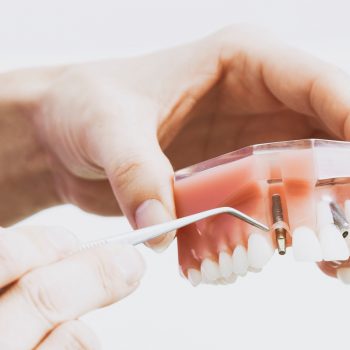

Difficult Extractions
What is a difficult extraction?
Simple extractions are routinely performed by your dentist. However, certain complex cases mean that there may not be sufficient tooth structure to enable simple removal i.e. very decayed teeth, broken and brittle roots, impacted teeth and wisdom teeth. At So Dental we have skilled dental surgeons in Oral Surgery who will ensure that the tooth is removed in the least traumatic technique using specialised equipment. This is crucial in ensuring that bone can be preserved which is an important consideration for implant treatment at a later stage.
Wisdom Tooth Removal
The wisdom tooth (or third molar) is usually the last tooth to erupt into the mouth any time after approximately 16 years of age. Frequently there is not enough room to accommodate wisdom teeth and as such they do not come into the mouth normally. When this happens, the wisdom teeth are said to be “impacted”. Wisdom teeth are usually either impacted forwards into the tooth in front or backwards into the jaw bone.
Why do wisdom teeth require removal?
An impacted tooth can cause a number of problems that would suggest removal would be best. Most commonly these include repeated attacks of infection in the gum surrounding the tooth. This leads to pain and swelling. Food packing can also occur when can cause decay in either the wisdom tooth or the tooth in front.
Does it hurt?
No. A local anaesthetic is used and the surgeon will ensure that you are comfortable throughout the entire procedure.
What does it involve?
The aim of the treatment is remove all infection or potential infection from the mouth, caused by the tooth.
Difficult teeth removal is a skilled procedure, usually involving 1 visit with the surgeon. It may be necessary to make a small incision in the gum and drilling to enable comfortable removal of the tooth. You would normally have dissolvable stitches placed which will promote healing and last for approximately 2 weeks.
The treatment will be carried out under local anaesthesia.
The procedure time is variable. Some teeth may take only a few minutes to remove. More difficult extractions can take up to 20 minutes to extract. You will feel pushing and pulling during the procedure, but no pain.
You will receive a complimentary follow up phone call and a review appointment to ensure full healing following the procedure.
What are the side effects following treatment?
You may experience some soreness, mild swelling and bruising and bleeding following the procedure. This is usually worse for the first three days but it may take up to two weeks before the soreness goes. You may also find your jaw is stiff and may need to eat a soft diet for a week or so. The surgeon will explain the after care required following the treatment to ensure full healing.
What if I don’t have the tooth removed?
Tooth removal may be advised due to risk of pain, infection and decay. If the tooth is left untreated then there is the risk of serious spread of infection, which may spread to other areas of the body.
What about aftercare?
After your treatment, the surgeon will advise you to follow strict instructions to promote satisfactory healing. You will need to maintain a soft diet for 2 days, carry out regular warm salty mouth-rinses and you may also require painkillers. It is important to keep the extraction sites as clean as possible for the first few weeks after surgery.
Where can the treatment be carried out?
The treatment will be carried out at the practice on a day that is suitable for you.
We are happy to offer weekend appointments to avoid taking time off work.


